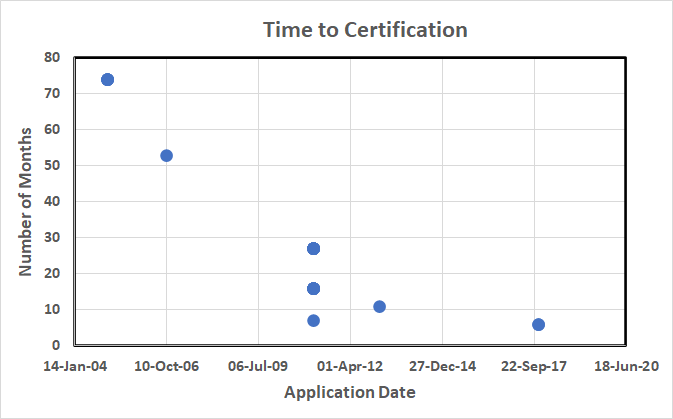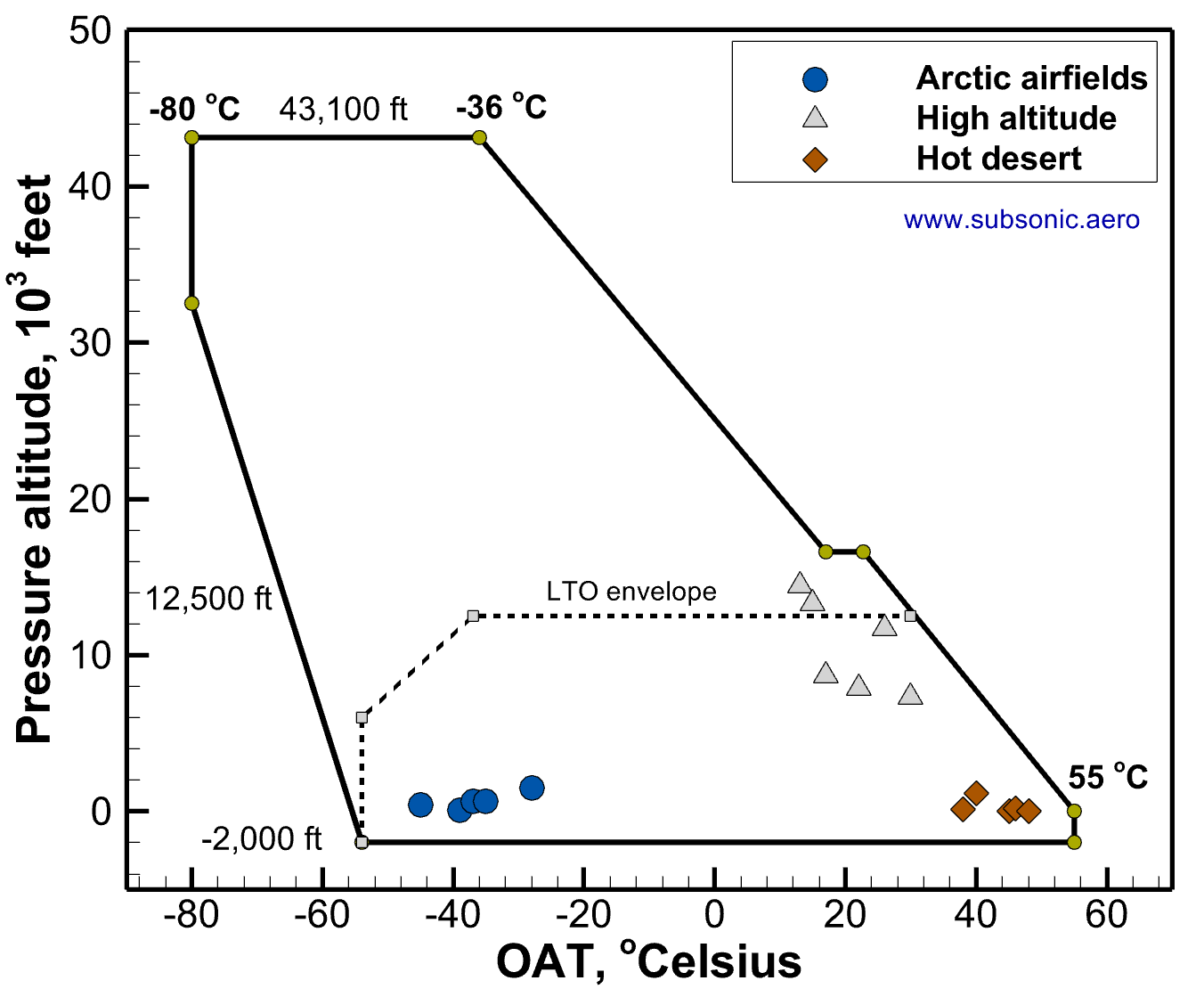Technical Note: Aviation Intelligence and Data Analysis
1. Type Certification
One of the key aspects of aviation law is the certification of an aircraft/rotorcraft, an engine, a propeller, etc. There is a laborious process that must be followed, one that is not always straightforward, and may lead to critical delays in the introduction of a new product. So, how long does it take to acquire a new Type Certificate? – In the graph below we have the certification time with the EASA of several versions and upgrades of a modern turbofan engine. On the horizontal axis there is the application date, and on the vertical axis is the time to certification in full months.
The first thing to observe is that the initial product took in excess of 6 years to certify. Later derivatives took shorter time, down to 6 months for minor upgrades. The application data bears no consequence on the approval date. This is evidenced by the fact that 3 variants of the engines had an application submitted on the same date, and the approval took between 9 months and 27 months: three times longer! – Drawing a regression line through the data points is unwise.
The chart itself does not provide all the knowledge of the process, and one further investigation would concentrate on the reasons why one product was quicker to reach the market.
We have data for a variety of assessements in the path to type certification.

2. Environmental Effects at Airports
Take-off and landing operations are affected by topographic conditions, climatic data and local weather conditions. We have produced an analysis of worldwide airfields that include all these data in order to assess extreme conditions, such as altitude-temperature combination, probability of dust encounter, icing conditions leading to start-up difficulties, etc.
Each airport is defined by altitude, GPS coordinates, IATA code, city/country, runway length, topographic features, Köppen climate data, extreme low/high temperature, volume of passenger and cargo traffic.

